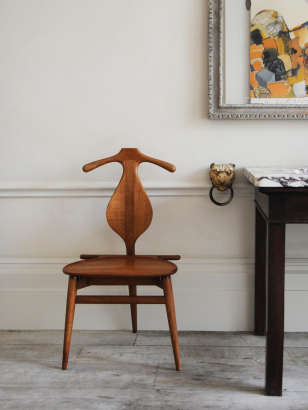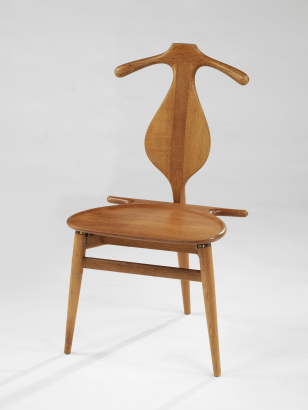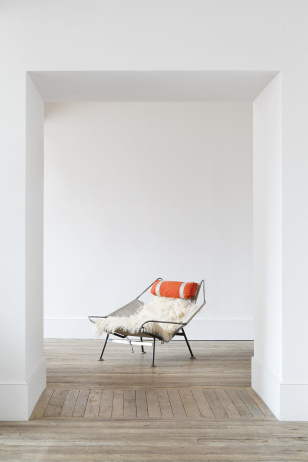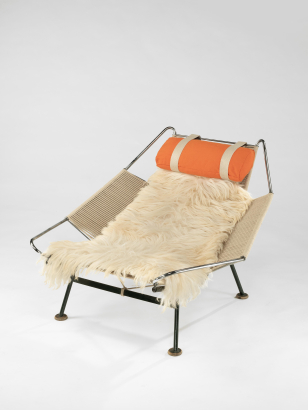Wegner Hans
Biography
Hans Jorgen Wegner (1914 - 2007) learned woodworking as a boy, the son of a cobbler, in southern Denmark. He studied design at 'The Artisan College' in Copenhagen between 1936 & 1938 after which he was hired by Erik Møller and Arne Jacobsen to design furniture for a town hall they were creating. He worked for Møller and Jacobsen through the early 1940s, then established his own furniture studio. It was in 1942 that this series of designs were conceived for Mikael Laursen - each with a simple repeated carved ivy frond motif - a dining room of furniture. The chairs and a side cabinet were embellished with the carving, whilst the table is left unornamented yet expertly designed & manufactured.
Wegner received a number of prizes and recognitions; he was an honorary member of The Royal Danish Academy of Fine Arts and received an honorary doctorate from the Royal College of Art in London. He was also the first ever recipient of the Lunning Prize and received the 8th International Design Award in Osaka, Japan. His works are exhibited at major international museums including MoMA in New York and Die Neue Sammlung in Munich.
Hans J. Wegner died in Denmark in January 2007 at the age of 92. His contributions to Danish design are as follows: a master carpenter first and a designer second, perfectly finished joints and exquisite forms. He had deep respect for the wood and its character and an everlasting curiosity for good material. He gave modernism an organic, natural softness. Hans Wegner is considered 'the master chair maker', designing more than 500 chairs during his lifetime, something he has never been surpassed in.
"The chair is the closest thing to a person. You can give it personal expression. Obviously, it has been just as important for me to make sensible cabinets. Everything in a house must definitely not be too artistic. One thing should accentuate the other. There needs to be a neutral background. In my view, cabinets and the like must be something that works. Chairs, too. But cabinets don't need personal expression."
Hans J. Wegner



